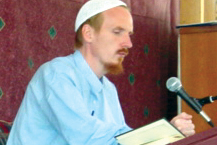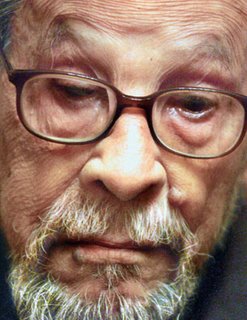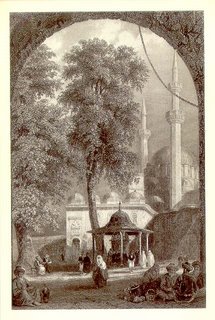“My talk…comes in a language unknown to many of you but [that language] is the real winner of the prize. It is, therefore, appropriate that its melodies should float for the first time into your oasis of culture and civilization. I have great hopes that this will not be the last time, either, and that literary writers of my nation will have the pleasure of sitting with full merit among your international writers, who have spread the fragrance of joy and wisdom in this grief-ridden world of ours.
“I was told by a foreign correspondent in Cairo that the moment my name was mentioned in connection with the prize, silence fell, and many wondered who I was. Permit me, then, to present myself in as objective a manner as is humanly possible. I am the son of two civilizations that at a certain age in history formed a happy marriage. The first of these, 7000 years old, is the pharaonic civilization; the second, 1400 years old, is the Islamic one…. As for Islamic civilization, I will not talk about its call for the establishment of a union of all humankind under the guardianship of the Creator, based on freedom, equality and forgiveness….
“I will, instead, introduce that civilization in a moving, dramatic situation summarizing one of its most conspicuous traits. In one victorious battle against Byzantium it gave back its prisoners of war in return for a number of books of the ancient Greek heritage in philosophy, medicine and mathematics. This is a testimony of value for the human spirit in its demand for knowledge, even though the demander was a believer in God and what was demanded was the fruit of a pagan civilization.
“Ladies and Gentlemen, you may be wondering: This man coming from the Third World, how did he find the peace of mind to write stories? … Fortunately, art is generous and sympathetic. In the same way that it dwells with the happy ones it does not desert the wretched. It offers both alike the convenient means for expressing what swells up in their bosom.
“In this decisive moment in the history of civilization it is inconceivable and unacceptable that the moans of Mankind should die out in the void. There is no doubt that Mankind has at last come of age, and our era carries the expectations of entente…. The human mind now assumes the task of eliminating all causes of destruction and annihilation. And just as scientists exert themselves to cleanse the environment of industrial pollution, intellectuals ought to exert themselves to cleanse humanity of moral pollution. It is both our right and our duty to demand of the great leaders in the civilized countries, as well as of their economists, to effect a real leap that would place them in the focus of the age.
“In the olden times every leader worked for the good of his own nation alone. The others were considered adversaries, or subjects of exploitation…. Today, this view needs to be changed from its very source. Today the greatness of a civilized leader ought to be measured by the universality of his vision and his sense of responsibility toward all humankind. The developed world and the Third World are but one family. Each human being bears responsibility toward it to the degree that he has obtained knowledge, wisdom and civilization. I would not be exceeding the limits of my duty if I told [the leaders] in the name of the Third World: Be not spectators to our miseries…. We have had enough of words. Now is the time for action.”
Read the memoir of Naguib Mahfouz here


